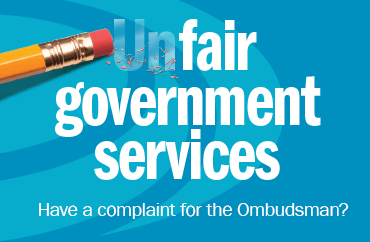Ease the Pain
**This featured case is one example of the concerns people have brought to us. Names have been changed to protect the identity of the people involved.
August* injured his back more than 20 years ago and has had numerous surgeries on his spine. He receives full compensation from WCB and is considered unemployable. Over the years, his doctors have prescribed various ways to manage the pain, including very potent pain relievers with limited success. Eventually, a neurosurgeon recommended marijuana, which August began using in 1998.
In 2003, August applied to Health Canada for approval to use marijuana for medical purposes. His application included medical declarations from two neurologists that the marijuana was meant to help him deal with the pain from his surgeries, that other conventional treatments were not appropriate, and that the benefits would outweigh the risks. The application was approved.
In addition to the medical marijuana, August was also prescribed Marinol which is a synthetic form of marijuana. For about two and a half years, the WCB covered August’s use of Marinol. They then decided to cease coverage retroactively, leaving him with an unpaid pharmaceutical bill of $2,000. Later, they reviewed this decision and decided to pay the bill and continue coverage for a short time so he and his doctor could find alternate treatment.
During this time, August made repeated requests and filed a number of appeals about the WCB’s decisions to deny coverage for his medical marijuana and his prescription for Marinol. His doctor affirmed that the Marinol helped August manage his pain and control the nausea he experienced when taking certain other pain medications. The WCB, when making its decisions, referred to the “indications” listing in the Saskatchewan Health Drug Formulary Plan or the Compendium of Pharmaceuticals and Specialties. Based on this information, the WCB said that Marinol was really only indicated for severe nausea and vomiting associated with cancer chemotherapy and for Aids-related anorexia. It was not indicated for other types of pain management or nausea control.
August contacted us and we investigated. We reviewed the WCB’s policy on reimbursement for medications. It states that approval be based on the following criteria:
a. it is prescribed by the treating physician
b. it is appropriate and needed to treat the compensable injury and/or
c. the use of the medication corresponds to the indications listing in the Saskatchewan Health Drug Formulary Plan or the Compendium of Pharmaceuticals and Specialties, or
d. it is approved by the Workers’ Compensation Board (WCB) Medical Consultant.
While we could understand that WCB’s usual preference is to follow the Formulary Plan or Compendium, we also saw some room in their policy to weigh the options and approve coverage for August’s use of Marinol. We were aware that the College of Physicians and Surgeons supports evidence-based medicine and was not certain of the safety and efficacy of the use of medical marijuana. However, they still permit licenced physicians to prescribe Marinol and medical marijuana, the latter with Health Canada approval. Two specialists, as well as August’s family doctor, supported his use of Marinol and confirmed that it was successfully treating his pain.
As a result of our findings, we recommended that the WCB approve payment to August for his use of Marinol. WCB did not accept our recommendation and continued to be of the view that its use for the condition August suffered was not in keeping with the College’s position supporting evidence-based medicine. In particular, they told us that they do not approve any medications that are not in the formulary. While they did not accept our recommendation, they were prepared to seek other evidence on the treatment. We were unable to find a remedy for August but we were hopeful that the Board was prepared to study the issue, which leaves the door open to reconsidering our recommendation.
*Names have been changed to protect identity.




